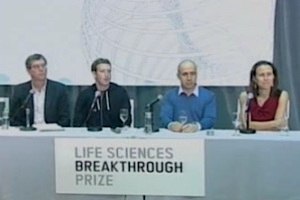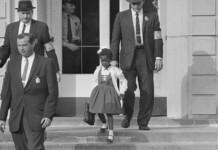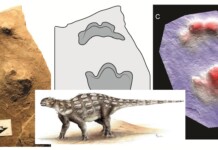 Tech world celebrities including Facebook co-founder Mark Zuckerberg and Google’s Sergey Brin have donated part of their fortunes to help extend human life through the Breakthrough Prize in Life Sciences, a $33 million award to help 11 different scientists in their efforts to cure complex diseases.
Tech world celebrities including Facebook co-founder Mark Zuckerberg and Google’s Sergey Brin have donated part of their fortunes to help extend human life through the Breakthrough Prize in Life Sciences, a $33 million award to help 11 different scientists in their efforts to cure complex diseases.
In its inaugural year, the Breakthrough Prize in Life Sciences Foundation, a not-for-profit corporation dedicated to advancing breakthrough medical and science research has awarded $3 million each to: (watch the video below)
- Cornelia I. Bargmann, at the Rockefeller University, for her medical research into the genetics of neural circuits and behavior, and synaptic guidepost molecules.
- David Botstein, at Princeton University, for his genomics work linkage mapping the Mendelian disease in humans using DNA polymorphisms.
- Lewis C. Cantley, at Weill Cornell Medical College and New York-Presbyterian Hospital, for the discovery of PI 3-Kinase and its role in cancer metabolism.
- Hans Clevers, a professor of Molecular Genetics at Hubrecht Institute, for describing the role of Wnt signaling in tissue stem cells and cancer.
- Titia de Lange, at the Rockefeller University, for research on telomeres, illuminating how they protect chromosome ends and their role in genome instability in cancer.
- Napoleone Ferrara with the Moores Cancer Center at the University of California, San Diego, for discoveries in the mechanisms of angiogenesis that led to therapies for cancer and eye diseases.
- Eric S. Lander, a biologist at MIT and the Harvard Medical School, for the discovery of principles for identifying human disease genes, and enabling their application to medicine through the creation and analysis of genetic, physical and sequence maps of the human genome.
- Charles L. Sawyers, at Memorial Sloan-Kettering Cancer Center, for his work on cancer genes and targeted therapy.
- Bert Vogelstein, from Johns Hopkins, for his work on cancer genomics and tumor suppressor genes.
- Robert A. Weinberg, a cancer and biomedical researcher at MIT, for his work on the characterization of human cancer genes.
- And, Shinya Yamanaka, from Kyoto University and the Gladstone Institutes in San Francisco, for their work on induced pluripotent stem cells.
Going forward, each year’s prize winners will join the Selection Committee for future awardees and the Prize will maintain a transparent selection process, in which anyone will be able to nominate a candidate online for consideration. Also, the prize can be received more than once with no age restrictions.
All Breakthrough Prize recipients will be invited to present public talks targeting a general audience. These lectures, together with supporting materials, will be made available to the public, allowing everyone to keep abreast of the latest developments in life sciences, guided by contemporary masters of the field




















Every dis-ease is a SYMPTOM of an error-laden State of MIND, beginning with “Being Against” many things, instead of forgiving (correcting the false thought in some one else).
Examples:
Arthritis – Excessive Criticism; Flu – Stress, based on fear, ignorance & confusion; Alzheimer’s – absence of original thoughts…
By now, it should be obvious that throwing money at principles and axioms resolves nothing, it only prolongs the duration of the process of shuffling problems from left to right and back, without ever ARISING above them.
I agree…with the awareness that not all life exists in distinct phases offset from visible matter on Earth. (Kind of a Catch 22: what you send out does indeed return to you, have care which company you stay with.